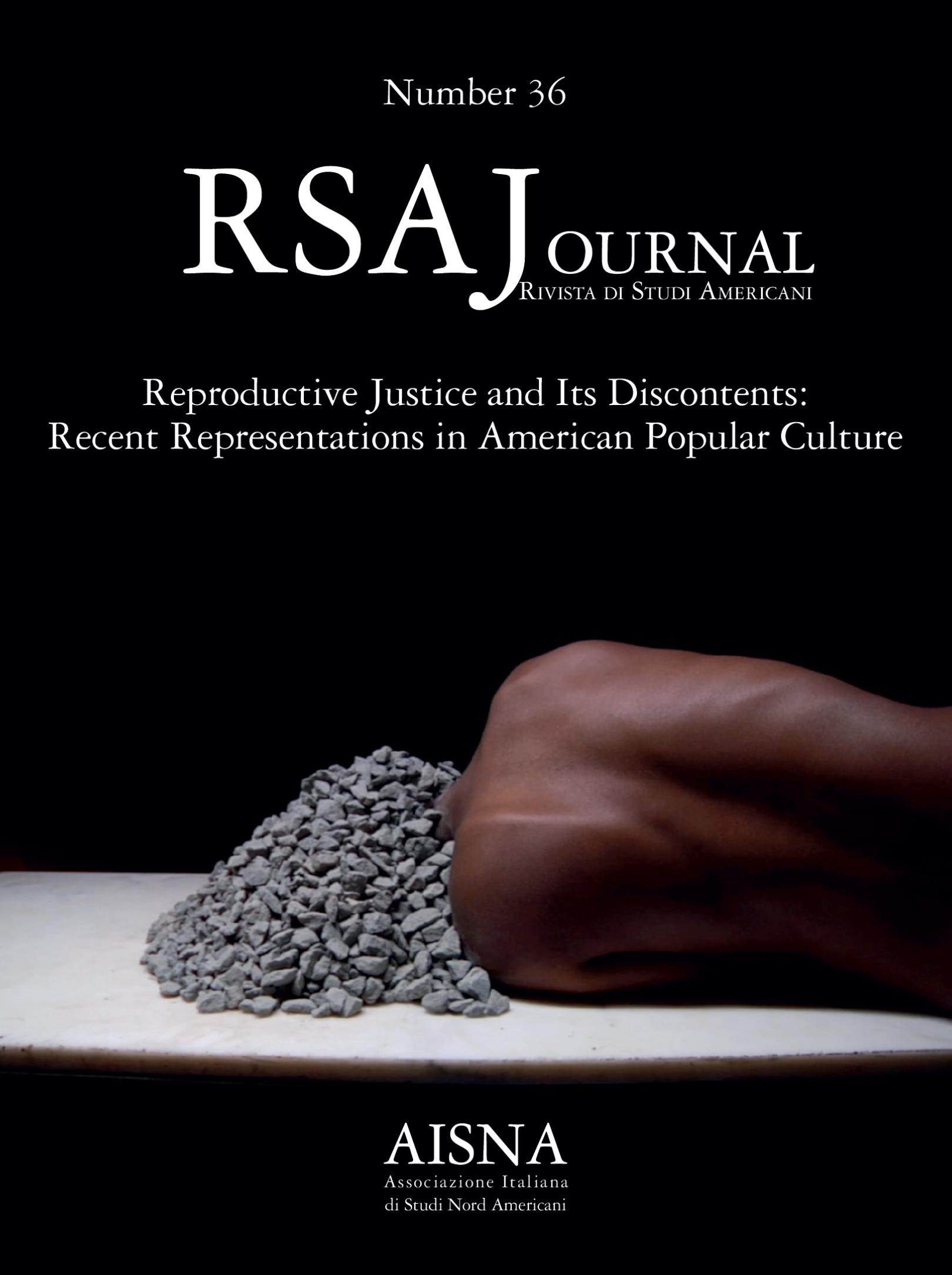“To the Men Who Love Us”
The Reframing of Reproductive Rights during Kamala Harris’s 2024 Presidential Campaign
DOI:
https://doi.org/10.13135/1592-4467/11729Keywords:
Reproductive Freedoms, Michelle Obama, 2024 Presidential Election, Benevolent Sexism, Protective PaternalismAbstract
Women’s reproductive rights were one of the central issues in the run-up to the 2024 US presidential election. Kamala Harris ran on the issue as she and her supporters on the campaign trail emphasized the importance of access to all reproductive healthcare services, which, depending on individual state laws, had been severely curtailed since the overturning of Roe v. Wade in 2022. However, to Harris’s detriment, the gender gap in the 2024 election was projected to be profound (Pellish), and Donald Trump did retain a firm hold over men’s votes, with 53% of men aged 18 to 44 and 57% of men votes aged 45 and up voting for him (“Interactive”). The Trump campaign was evasive about reproductive issues and, instead, aggressively promoted hypermasculine images by campaigning with Hulk Hogan and enlisting the support of conservative pundits, including Joe Rogan and Charlie Kirk (founder of the conservative activist organization Turning Point USA) (Kellman). Amanda Friesen and Kate Hunt’s observation that movements like #MeToo have further alienated men from women’s issues complicated the Harris campaign’s efforts to make inroads with male voters and actively engage them in the ongoing debates. This essay will show that the Harris campaign set out to win votes by reframing their rhetoric to position reproductive rights in the context of other fundamental American freedoms and convey that men have a stake in preserving access to reproductive healthcare. Michelle Obama’s powerful campaign rally speech on October 26, 2024, in Michigan (accessible on Kamala Harris’s YouTube channel) was the most conspicuous example of this strategy. Taking the stage in a camouflage-patterned blazer, Obama, not long into her speech, began a sentence with “[t]o the men who love us . . .” (Kamala Harris, “Michelle Obama”). The former first lady’s argument was in part an impassioned plea that forcefully explained to men how another Trump presidency and concomitant healthcare restrictions would hurt the women they loved and, ultimately, themselves. Thus, I will argue that Obama’s speech strikes a delicate balance between prompting men to “step up” for reproductive freedom on its merits and appealing to masculine gender scripts, reminiscent of “protective paternalism” (Leaper and Gutierrez), to suggest that voting Harris is a way to fulfill their “duty” to “protect” women, which is a political strategy that nevertheless somewhat weakens emancipatory discourses of bodily autonomy.
Downloads
Published
Issue
Section
License
Copyright (c) 2025 Sandra Tausel

This work is licensed under a Creative Commons Attribution-NonCommercial-NoDerivatives 4.0 International License.
RSAJournal applies a CC BY-NC-ND license to all its contributions. This license enables reusers to copy and distribute the material in any medium or format in unadapted form only, for noncommercial purposes only, and only so long as attribution is given to the creator. CC BY-NC-ND includes the following elements:
- BY: credit must be given to the creator.
- NC: Only noncommercial uses of the work are permitted.
- ND: No derivatives or adaptations of the work are permitted.
Authors who publish with this journal agree to the following terms:
- Authors retain the copyright and full publishing rights for their submissions to the journal.
- Authors grant the journal right of first publication with the work simultaneously licensed under a Creative Commons Attribution-NonCommercial-NoDerivatives 4.0 International License that allows others to share unedited work for non-commercial purposes with an acknowledgement of the work's authorship and initial publication in this journal.
- Authors are able to enter into separate, additional contractual arrangements for the non-exclusive distribution of the journal's published version of the work (e.g., post it to an institutional repository or publish it in a book), with an acknowledgement of its initial publication in this journal.




